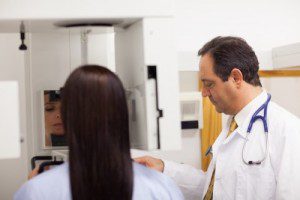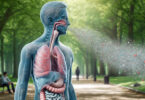By Sayer Ji
Contributing Writer for Wake Up World
Mammograms are in the news again, and it doesn’t look good for those who continue to advocate using them to “detect cancer early” in asymptomatic populations. The science increasingly runs directly counter to the screening guidelines produced by both governmental and nongovernmental health organizations claiming to be advocates for women’s health.
Remember that only last November, the New England Journal of Medicine published a shocking analysis of the past 30 years of breast screening in the US, finding that 1.3 million women were over-diagnosed and over-treated for breast cancer – euphemisms for misdiagnosed and mistreated.1
This finding, released cunningly from scientific embargo to the media on the eve of Thanksgiving, was so devastating in its implications that many either did not understand its meaning, or could not bear to accept the truth that the quarter of a century clarion call of breast cancer awareness month – get your annual mammogram or lose your life! – caused more unnecessary suffering, pain and harm to women than it is possible to calculate. The only calculable dimension of this world-historical failure is the billions of dollars that were made in the process of converting healthy, asymptomatic women into “patients”, and if fortunate enough to make it through treatment, “survivors”.
Now, a new study published in the Journal of the National Cancer Institute, finds that those women who follow the American Cancer Society’s guidelines for the early detection of breast cancer, namely, annual screening for women 40 or older, are not only receiving no additional protection against aggressive breast cancer, but are experiencing greater harm through increased rates of false positives and unnecessary biopsies.
Researchers examined the records of over 140,000 women ages 66 to 89 who had mammograms between 1999 and 2006. They found that women who had more frequent mammograms (every year versus every two years) did not have a reduced risk of being diagnosed with aggressive breast cancer, as would be expected if mammograms actually were working to “find deadly breast cancer early” as widely claimed. Even after researchers adjusted for confounding factors such as age, place of residence and race, they found no benefit to more frequent screenings.
More concerning, the researchers found that the more times women were screened the greater their odds of getting “false positives” on mammograms. As reported by the LA Times:
For example, among women between the ages of 66 and 74 who already had health problems, 48% of those who had annual mammograms had at least one false-positive reading during a 10-year period. But among those who were screened every other year, only 29% had a false-positive result.
And among women between the ages of 75 and 89 with preexisting health problems, 48.4% of those screened every year had at least one false-positive reading during a 10-year span, compared with only 27.4% of those who had less frequent tests.“
The LA Times article went on to estimate that if all American women between 66-89 had annual mammograms instead of biannual ones, this would result in 3.86 million more false-positives and 1.15 million more recommendations for biopsies.
These statistics obviously do not account for how many of these over-diagnosed and over-biopsied women in this study ended up being unnecessarily treated for abnormal breast findings such as ductal carcinoma in situ, which would never have progressed to cause them harm. It does however, show just how dangerous and inaccurate breast mammography can be.
Another “invisible” problem is the fact that the so-called “low-energy” radiation wavelengths used in breast mammography are far more carcinogenic than “high energy” waves to which they are compared. This means that x-ray mammography is planting the seeds of future radiation-induced breast cancer into millions of women, all in the name of “prevention” and “awareness.”
The time has come for folks to look deeper into the true causes of cancer, as well as the research indicating that natural breast cancer solutions (many of which are empirically-confirmed) abound.
Article Resources
1 GreenMedInfo.com, 30 Years of Breast Screening: 1.3 Million Wrongly Treated
Recent articles by Sayer Ji
- The Evidence-Based Healing Properties of 13 Common Fruits
- Dental Composites for Kids: Even Worse Than Mercury Amalgam?
- 13 Evidence-Based Medicinal Properties of Coconut Oil
- Five Amazing Healing Honey Facts
- Is This Fruit Extract 10,000 Times Better Than Chemotherapy?
About the author:
Sayer Ji is the founder and director of GreenMedInfo.com and an advisory board member at the National Health Federation, an international nonprofit, consumer-education, health-freedom organization. He co-authored the book Cancer Killers: The Cause Is The Cure, and is working on another one with Tania Melkonian titled EATomology: An Edible Philosophy of Food.

If you've found value in our articles, we invite you to support the release of our brand-new book, "Gratitude Practices for Kids: A Practical Guide for Adults to Instill a Spirit of Appreciation and Positivity in the Next Generation."
"Gratitude Practices for Kids" brings together over 25 innovative and accessible practices designed to enhance gratitude in everyday life. This comprehensive guide is backed by 17 scientific studies, ensuring each concept is grounded in research, underscoring our commitment to nurturing growth, emotional intelligence, and positive interactions between adults and children.
We encourage you to opt for the paperback version to celebrate this new release. Dive into its fresh pages away from digital distractions, allowing you to immerse yourself in the transformative practices it offers.
Over recent years, Wake Up World has faced significant online censorship, which has impacted our financial ability to operate. Moving into book publishing represents a strategic step to secure the ongoing funds needed to continue our mission. By purchasing Gratitude for Kids, you help us keep our content free and accessible to everyone, avoiding needing a paywall. With over 8,500 articles published in the last 13 years, we remain dedicated to keeping our valuable content open to all.
Disclaimer: This article is not intended to provide medical advice, diagnosis or treatment. Views expressed here do not necessarily reflect those of Wake Up World or its staff.









